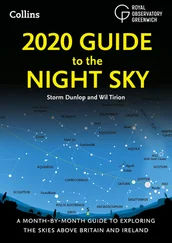When I was six, my mother burned our house down. Not a dream house; a real house. Down to the ground. I don’t remember anything before that. She wants to rebuild the house in the Hinterland, keep it forever, but I won’t let her.
“You make something then,” mother once told me.
“I did,” I said. “I made this.” This is a horror. But she doesn’t mention it.
I hurry now through all of the safe rooms until I am out of breath and I am still absolutely alone. I am out of places to look. “Mother!” I scream. She has to be here. I point my face into the center of the house and call again, “Mother!”
A bit of movement pulls at the corner of my eye. Is it she? I quickly turn to see a tall form step away and then recede behind a broken wall. That is not my mother. That is someone else. My mother is a small person with long hair. This stranger is a tall person and the hair is short. Someone else inside the Hinterland. Looking for me, for my mother, for the center of Dark House? My nightmare: someone’s come to push me in.
George had seen a picture of himself when he was two. He was a fat baby with a bubble pipe clutched in one hand. The camera captured him in the act of running, with a free hand up to catch the bubbles. What interested George in this picture was not himself. It was his mother and father in the background of the shot, which must have been taken by a friend or a neighbor, because it showed the whole family. His mother was young, with her blond hair down and long. His father looked happy, and his face was shaved. His mother was sitting on his father’s knee and grabbing his neck with her elbow, pulling him into her chest, and his father had a goofy look on his face. His mother’s teeth were incredibly wonky. They were all showing.
George’s mother was a tall person with smooth long limbs, like a model’s. In her youth, she’d had long blond hair, and her teeth had been horsey and huge. When she got some money, she had them fixed, and now they were normal, and she was a perfect-looking fifty-year-old woman. Wise, sure, with ashy short hair and dove-gray scarves to tie around her throat. For George, looking at his mother with these awful teeth was touching. Especially the fact that she was grinning like an ape, and clearly didn’t care.
* * *
George drove down I-75 toward Bowling Green, a college town just south of Toledo. He was going to retrieve his mother from the courthouse there. She had punched a client and broken his nose.
On the phone, his mother had said, “He was being an idiot. Had you done the same, I would have punched you, too. Everyone knows he deserved it. They’re just being careful because he’s a student. They all need punching.”
“Mom,” George said. “Please don’t punch anyone else.”
“I’m not making any promises,” she said.
“Do you want me to tell Dad?” George wanted to know.
“Don’t tell your father anything. In fact, go and lock my house so he can’t get in there until I get back.”
“Mom, I can be there in twenty minutes.”
“Don’t rush. I pick up clients when I have to stay in jail.”
Then someone had said, “Come on, lady. Let’s go.” And the phone went dead.
* * *
If George had to pin down the moment when his mother changed from the carefree woman with long hair and snaggle teeth to the woman she was now, so firm and sensible, brusque and put together, he would have to say it began when he was about six years old.
When he was very small, he remembered his mother walking with him through the woods, her huge long legs making whishing tracks through the brush and bramble, with him on her shoulders, and she’d sing “I got a brand new pair of roller skates,” and George could touch the treetops, he felt like. The mother of his youngest days was a beautiful, sweet, idyllic mother. He remembered a striped poncho she used to wear, and how they would eat peanuts in the car and throw the shells into the backseat, laughing.
She read to him from a book of Irish poetry every night. His favorite was written by Yeats, “The Stolen Child.” It was a song about the faeries enticing a small child away from the world he knew. Which seemed a bit sinister, at the end, but also beautiful. The faeries came, young George understood, and transported this lucky golden child to a land of enchantment, where there was magic and singing.
Sometimes he was allowed out of the house by himself, and he would run around out in a small dark wood, near where they lived out west of the city, by Lake Sawyer. George could remember sitting in a clearing in the woods, hypnotically entranced, to the point where he could hear the flapping herons and the drowsy water rats from the poem, and feel his lips upon the ears of sleeping trout, and know that he was sitting on that leafy island, leaving his mother and father behind. If he concentrated, George could remember a time when he had played with a faery, and he wanted to get back to that good feeling. He felt sure that the faery would come for him again out of the woods, and take him by the hand to lead him off. He could see the strange shape of her faery face from his memory. It was beautiful.
* * *
George’s car was a Volvo wagon. His mother had bought it for him when he graduated from college, hoping he would stay in New England or move to California, or anywhere really, the hell away from Toledo.
“I miss Toledo,” George had said. “I want to study at the institute.”
“Don’t come back,” his mother had said. But George had come back anyway. What happened to turn that laughing mother into the mother he had now? George often wondered. What happened, what happened? Now his mother was always certain of everything, and often angry. She referred to his childhood faery dreams as “that crazy crap.” She was hard on George’s father, hard on George.
The wagon rolled down the long flat stretch between Toledo and Bowling Green. It was late, late summer, and the sky was deeper blue than it had been all year, the rows of corn tall and brittle. The roadside swaths of grass were brown and the wildflowers waved on dry stalks. Northwest Ohio crunched under the foot of an encroaching fall. As an academic, George was disconnected from the planting and harvest cycles on earth, but he knew how to look up and tell what time it was at night. In the late summer he could see Sagittarius, the archer, Babylonian god of war, his bow cocked and arrow aimed straight for the heart of the scorpion twenty-eight degrees northeast.
* * *
By the age of nine, George became gangly, not so fat around the wrists and ankles anymore. He knew the faeries would no longer see him as some great prize to be lured away. Frustrated and crying in his room one night, with the lights off, he saw his mother and father both come to the door. She was working her way through the ranks at her firm at this time, trying to make partner, trying to make money. His father was painting, having art shows, traveling. He wanted to tell them, very privately, that he was sorry the faeries hadn’t stolen him away yet, and he was becoming afraid that it would never happen.
But when he opened his mouth to say it, he did not. Instead these words came out: “I miss her.” And when he said them, he knew that it was what he meant to say in the first place.
“I miss her,” he said again, more firmly, and then he began to cry. “I want her back.”
His mother came over and climbed into the bed with him, kicking off her shoes and pulling her long legs in nylons under the quilts. She held his arms close to his sides while he cried to her. His father sat at the bedside, silent.
“Who do you miss, baby?” she said. “Who is it that you miss?”
Читать дальше












